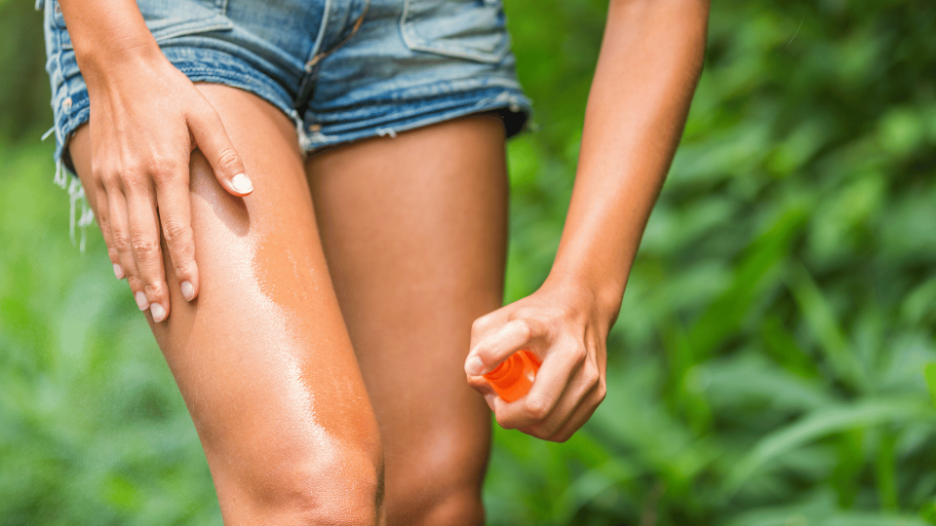
The itch factor: how to prevent and treat mosquito bites.
Welcome to CityMD’s guide on managing the summer's pesky problem—mosquito bites. Whether you're planning a backyard barbecue or gearing up for a camping trip, knowing how to handle mosquito bites can make your outdoor adventures more enjoyable.
Let's identify these bites, understand their how long they last, and explore prevention and treatment options.
How to identify mosquito bites.
Mosquito bites are more than just annoying; they can also be a health concern. They typically appear as puffy, round and reddish bumps that emerge soon after the bite. These bites often become very itchy and might even become hard or swell.
What's happening under the skin?
When a mosquito bites you, it injects saliva into your skin. The proteins in mosquito saliva trigger a mild allergic reaction in your body, which results in the itching and swelling commonly associated with bites.
Why do I get so many mosquito bites?
If you feel like mosquitoes single you out more than others, you're not imagining things. Several factors can make certain individuals more attractive to mosquitoes, leading to seemingly unfair numbers of bites.
Factors that attract mosquitoes:
- Body heat and sweat. Mosquitoes are drawn to body heat and the lactic acid in sweat. If you're often warm or exercising, you might attract more mosquitoes.
- Carbon dioxide. Every time you exhale, you release carbon dioxide. People who breathe heavier, like those who are larger or pregnant, might attract more mosquitoes because they produce more carbon dioxide.
- Skin bacteria. The type and amount of bacteria on your skin can also play a role. Mosquitoes may prefer certain combinations of skin microbiota, especially if it's different from what's found on most people.
- Blood type. Research suggests that people with Type O blood might be more attractive to mosquitoes than those with other blood types.
- Genetics. Your genetic makeup influences your body odor, which can either attract or repel mosquitoes.
- Clothing color. Mosquitoes use vision to locate hosts from a distance, and dark colors stand out, so wearing dark blues, blacks and reds can make you an easier target.
Understanding these factors can help you take steps to reduce your attractiveness to mosquitoes, such as wearing lighter-colored clothing, using repellent and avoiding heavy exercise in mosquito-prone areas.
How long do mosquito bites last?
Mosquito bites usually aren’t a big deal for most people. The discomfort from a mosquito bite—redness, swelling, itching—typically lasts a few days up to a week. However, the duration can vary depending on your body’s reaction.
Some might barely notice a mosquito bite, while others might experience more pronounced and irritating symptoms.
Factors that affect healing:
- Scratching. It's hard to resist but scratching a bite can prolong symptoms and even lead to infection.
- Allergic reactions. Some individuals may have a stronger allergic response to mosquito saliva, which can extend the healing process.
Mosquito bite prevention and treatment.
Preventing mosquito bites is key to avoiding both irritating symptoms and potential health risks, such as West Nile Virus, Zika Virus, or Yellow Fever.
Mosquito bite prevention tips:
- Use mosquito repellent. Products containing DEET, picaridin, or oil of lemon eucalyptus are highly effective.
- Wear appropriate clothing. Long sleeves and pants, especially treated with permethrin, can help keep mosquitoes away.
- Control mosquitoes at home. Eliminate standing water where mosquitoes breed, and consider using mosquito nets if sleeping outdoors.
Mosquito bite treatment options.
- Cooling creams and gels. Over-the-counter hydrocortisone cream or calamine lotion can reduce itching and swelling.
- Cold compresses. Applying a cold pack can help soothe the irritation and reduce inflammation.
- Antihistamines. If itching is severe, oral antihistamines can help manage allergic reactions to bites.
To ensure you're fully prepared and protected against mosquito bites, especially when traveling, consider looking into the appropriate travel vaccines. For more detailed guidance on what vaccines are necessary for your next trip, read CityMD’s guide on travel vaccines.
When to see a doctor at CityMD.
Most mosquito bites are harmless and don’t need medical attention. However, if you develop symptoms like a fever, severe headache, body aches, or signs of infection around the bite, it's a good idea to visit your local CityMD. These could be signs of more serious diseases transmitted by mosquitoes.
The best treatment for mosquito bites at CityMD.
Most mosquito bites are harmless and don’t need medical attention. However, if you develop symptoms like increased pain, swelling, redness in the area of the bite or fever/body aches, it's a good idea to visit your local CityMD. These could be signs of an infected mosquito bite, requiring further evaluation.

We’re ready to care for you.
Visit any CityMD urgent care location in your community today for an evaluation with one of our expert providers.